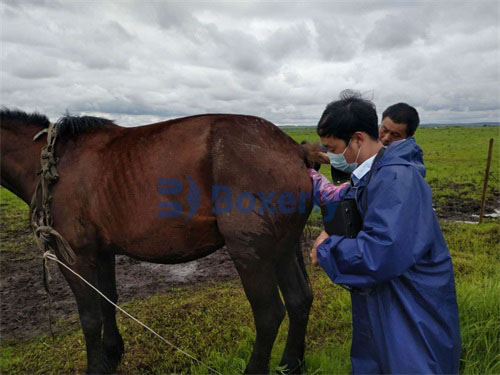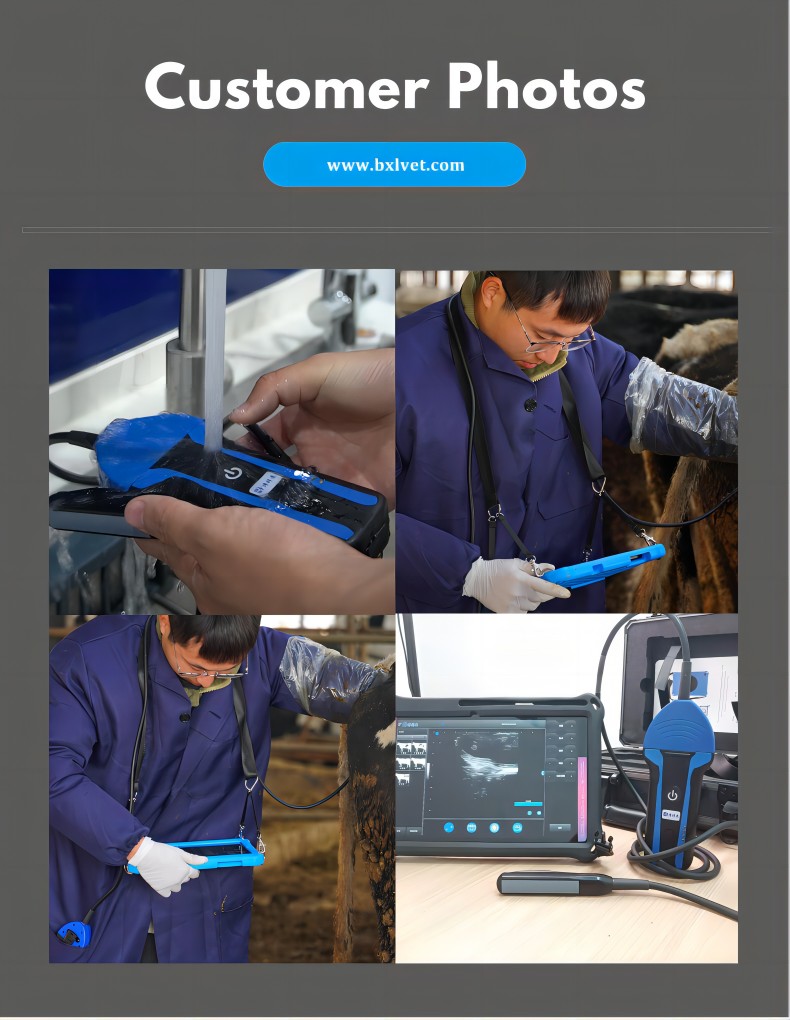Vaccination Protocols for Pregnant Horses to Prevent Infectious Abortion
In equine reproductive management, safeguarding the health of pregnant mares is vital not only for the mare’s well-being but also for the survival and development of the fetus. Among the most serious threats during equine gestation is infectious abortion, which can result in substantial economic losses and emotional distress for horse breeders and farm owners. Infections like Equine Herpesvirus-1 (EHV-1), Equine Viral Arteritis (EVA), and Leptospirosis are among the leading causes of abortion in pregnant horses, and vaccination remains the most effective strategy to prevent such outcomes.

In this article, I will explore best practices for equine vaccination protocols during pregnancy, drawing from practical experience and evidence-based veterinary recommendations widely recognized in countries like the United States, the United Kingdom, and Australia. We’ll also delve into how understanding the immune challenges of pregnancy helps improve these protocols and reduce the risk of reproductive failure.
Understanding Infectious Abortion in Horses
Infectious abortion in horses is defined as the loss of the fetus due to pathogens that cross the placenta and infect fetal tissues. This is not only a loss of an individual foal but also a potential outbreak risk on breeding farms, especially when the cause is contagious. Three major pathogens account for the bulk of cases:
-
Equine Herpesvirus-1 (EHV-1): Also known as rhinopneumonitis, this virus is highly contagious and one of the most common causes of abortion, typically occurring during the late stages of pregnancy.
-
Equine Viral Arteritis (EVA): This virus spreads through respiratory routes and semen. While many adult horses are asymptomatic, pregnant mares can suffer abortion during early or mid-gestation.
-
Leptospira spp.: A bacterial infection more common in wetter climates, causing placentitis and late-term abortion.
Countries such as the United States have reported that EHV-1 alone can affect entire herds when not managed properly, leading to “abortion storms” in breeding facilities. This is why proactive vaccination strategies, tailored to local risk factors and seasonal breeding practices, are a cornerstone of responsible equine herd health.
Immune System Challenges During Pregnancy
A pregnant mare’s immune system undergoes significant adaptations to support fetal development. This includes partial immune tolerance, which prevents the mare’s body from rejecting the fetus as a foreign object. However, this immune modulation also increases susceptibility to infections, especially viral and bacterial pathogens.
Understanding these changes has driven modern vaccination strategies. The timing of immunization must strike a delicate balance: stimulating protective immunity without causing undue immune stress on the pregnant animal. This is why vaccination protocols are carefully scheduled and adjusted according to gestation stages.
Core Vaccination Protocols for Pregnant Mares
1. Equine Herpesvirus-1 (EHV-1)
EHV-1 vaccination is considered essential for all pregnant mares, regardless of their previous exposure history. The most widely accepted protocol involves administering an inactivated EHV-1 vaccine at:
-
5 months of gestation
-
7 months of gestation
-
9 months of gestation
These booster vaccinations are designed to build sufficient antibody levels in the bloodstream, which then passively transfer to the fetus, offering both prenatal and postnatal protection. This protocol is widely used across the U.S. and European Union, with commercial vaccines like Pneumabort-K® recognized for their effectiveness.
2. Equine Viral Arteritis (EVA)
EVA vaccination is recommended only for seronegative mares, due to the complexities of international breeding protocols and semen transmission. Ideally, mares should be vaccinated before breeding, particularly if live cover or fresh-cooled semen from EVA-positive stallions is used.
Vaccination during pregnancy is not routinely practiced due to the live-virus nature of most EVA vaccines. Hence, managing exposure risk through prior immunization and stallion screening is vital.
3. Leptospirosis
Leptospira-induced abortion is more sporadic and regional. In places like Kentucky or parts of Australia where the risk is higher, the Lepto EQ Innovator® vaccine is recommended. Pregnant mares are usually vaccinated in the second trimester to provide sufficient antibody titers before the high-risk late pregnancy period.
Vaccination can be repeated annually for consistent protection, particularly in areas with standing water or wildlife reservoirs.

Additional Vaccinations with Indirect Reproductive Benefits
Besides those directly targeting abortive agents, several other vaccines contribute to overall mare health during pregnancy and protect the newborn foal after birth:
-
Tetanus: Vaccination is recommended 4–6 weeks before foaling to ensure colostral antibodies are high.
-
Eastern/Western Equine Encephalomyelitis (EEE/WEE) and West Nile Virus (WNV): Annual boosters timed a month before foaling help boost maternal immunity passed to the foal.
-
Influenza: Respiratory infections can stress the pregnant mare and compromise placental integrity. Boosters are advisable if the mare is due during flu season or if there’s an outbreak.
These protocols are standardized by institutions such as the American Association of Equine Practitioners (AAEP) and the British Horse Society, reflecting their critical role in herd-level reproductive health.
Practical Considerations for Vaccination
Timing and Administration
Timing is everything when it comes to immunizing pregnant horses. The risk of immunological disturbance is highest in the first 60 days of gestation, so most vaccines—especially those that are inactivated—are administered after this window, typically during mid to late gestation.
Always use vaccines labeled for use in pregnant mares. Administering off-label vaccines, particularly modified-live vaccines, can be dangerous and increase the risk of abortion. Dosing should always follow manufacturer guidelines, and good handling practices (refrigeration, mixing, aseptic technique) are essential.
Record-Keeping
Maintaining a precise vaccination record for each mare is critical. On our farm, we use a simple spreadsheet to track:
-
Mare ID
-
Date of breeding
-
Expected foaling date
-
Vaccine type
-
Date of administration
-
Veterinarian signature
This prevents missed boosters, reduces human error, and simplifies health audits or insurance claims in case of pregnancy loss.

Monitoring for Vaccine Reactions
Although rare, some mares may experience local swelling, lethargy, or mild fever post-vaccination. In pregnant mares, any adverse reaction warrants immediate veterinary attention. On our farm, we schedule vaccinations in the morning and monitor the mare for at least 24 hours post-injection.
Involving your veterinarian in all reproductive health planning ensures tailored decisions that take into account both farm-specific risks and broader disease trends.
Case Study: Reducing Abortion Losses in a Kentucky Breeding Farm
A notable example comes from a Thoroughbred breeding operation in Kentucky, where implementation of strict EHV-1 vaccination protocols and leptospirosis immunization led to a 70% reduction in abortion cases over five years. The farm combined regular vaccination with biosecurity measures such as:
-
Isolating new arrivals
-
Reducing stress and overexertion in late-term mares
-
Routine ultrasound checks to monitor fetal viability
The key lesson was that vaccination alone isn’t enough—it must be part of a broader herd health strategy that includes nutrition, deworming, and clean environmental management.
International Insights and Comparative Practices
In Australia, where leptospirosis is more prevalent, protocols place a stronger emphasis on Leptospira vaccines, especially in northern states. Meanwhile, in European stud farms, EVA management takes precedence due to strict import/export rules and artificial insemination practices.
Despite regional variation, a few core principles hold true across the globe:
-
Use inactivated vaccines for pregnant mares.
-
Avoid live-virus vaccines during gestation.
-
Prioritize booster schedules for optimal immunity.
-
Customize based on regional disease risk.
Conclusion
Vaccination protocols for pregnant horses are a fundamental part of preventing infectious abortion, ensuring foal viability, and maintaining the economic stability of equine breeding operations. While EHV-1, EVA, and Leptospirosis are the primary targets, broader maternal health and neonatal protection are also key considerations.
As equine veterinarians and horse owners worldwide continue to refine reproductive health strategies, evidence-based vaccination remains the most effective, accessible, and proactive tool we have. Understanding the science behind immune changes in pregnancy and tailoring vaccination protocols accordingly is what transforms good breeding management into great results.
References:
-
American Association of Equine Practitioners (AAEP). (2024). Vaccination Guidelines. https://aaep.org/guidelines/vaccination-guidelines
-
USDA Center for Veterinary Biologics. (2023). Licensed Equine Vaccines. https://www.aphis.usda.gov/aphis/ourfocus/animalhealth/veterinary-biologics
-
The British Horse Society. (2023). Equine Health and Vaccination Advice. https://www.bhs.org.uk/horse-care-and-welfare/health-care-management/vaccinations
-
University of Kentucky Gluck Equine Research Center. (2022). Equine Infectious Disease Control. https://gluck.ca.uky.edu
-
Equine Disease Communication Center (EDCC). (2024). Disease Alerts and Vaccine Information. https://equinediseasecc.org/alerts





